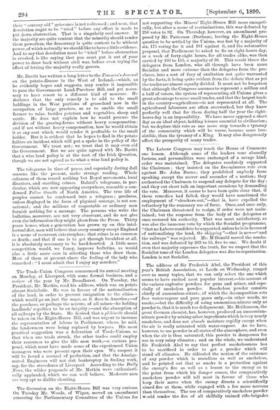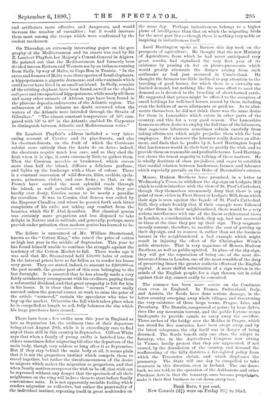The address of Sir Frederick Abel, the President of this
year's British Association, at Leeds on Wednesday, ranged over so many topics, that we can only select the one which seems to have excited most popular interest,—his account of the various explosive powders for guns and mines, and espe- cially of smokeless powder. Smokeless powder consists chiefly of ammonium-nitrate, of which the decomposition sets free water-vapour and pure gases only,—in other words, no smoke,—but the difficulty of using ammonium-nitrate only as powder is, that it is much too deliquescent. Mr. Heidemann, the great German chemist, has, however, produced an ammonium- nitrate powder by mixing other ingredients which is very nearly smokeless, and does not absorb moisture rapidly except when the air is really saturated with water-vapour. As we have, however, to use powder in all states of the atmosphere, and even when the air is thus saturated, this powder is dangerous for use in very rainy climates ; and on the whole, we understand. Sir Frederick Abel to say that perfect smokelessness has to be sacrificed in order to get a powder which will stand all climates. He ridiculed the notion of the existence of any powder which is soundless as well as smokeless, and he pointed out that as smoke is a protection against the enemy's fire as well as a lesson to the enemy as to the point from which his danger comes, the comparatively smokeless powder will tell most in favour• of those who keep their nerve when the enemy directs a scientifically aimed fire at them, while engaged with a foe more nervous than themselves. The use of comparatively smokeless powder would render the fire of all skilfully trained rifle-brigades and artillerists more effective and dangerous, and would increase the number of casualties ; but it would increase them most among the troops which were confronted by the coolest marksmen.



































 Previous page
Previous page